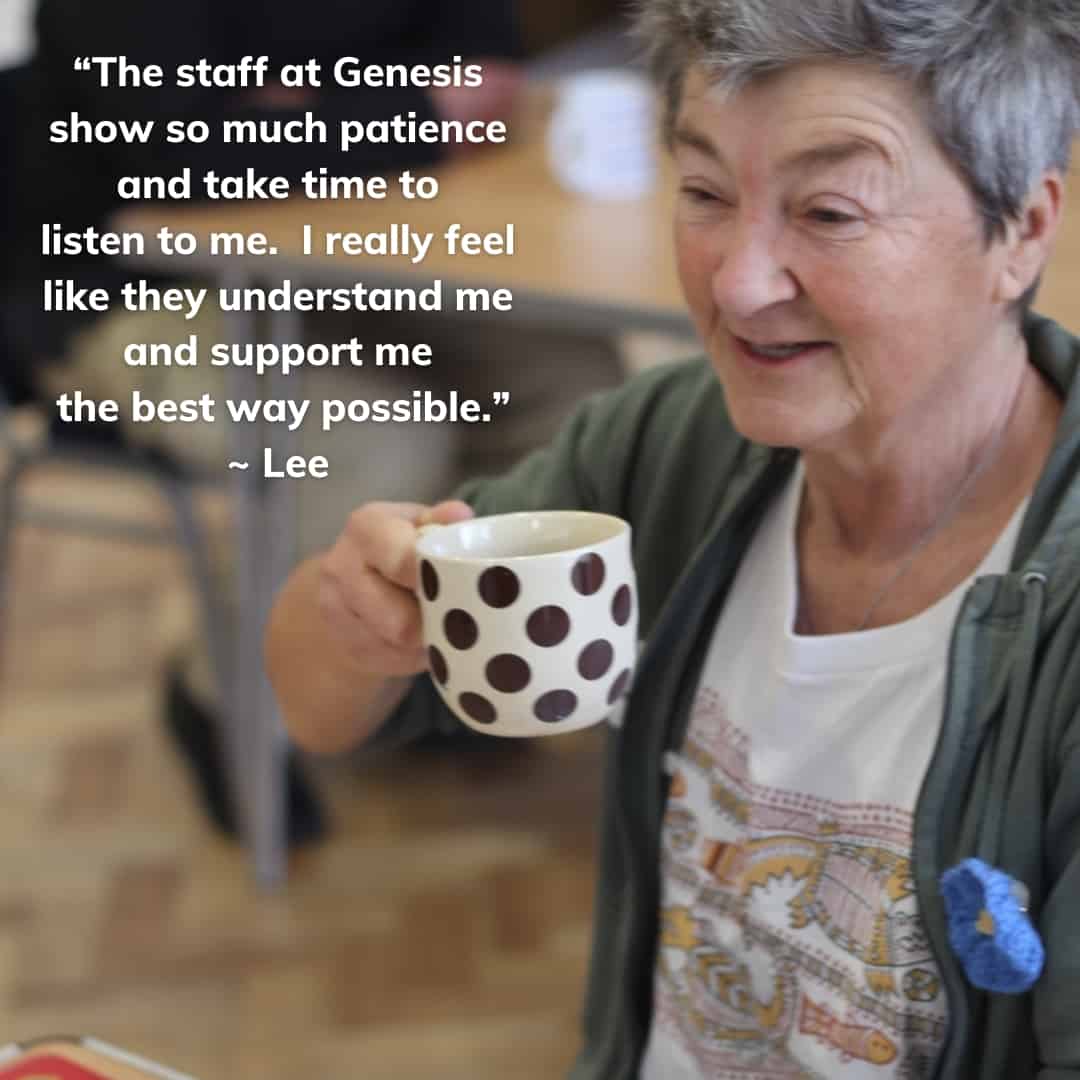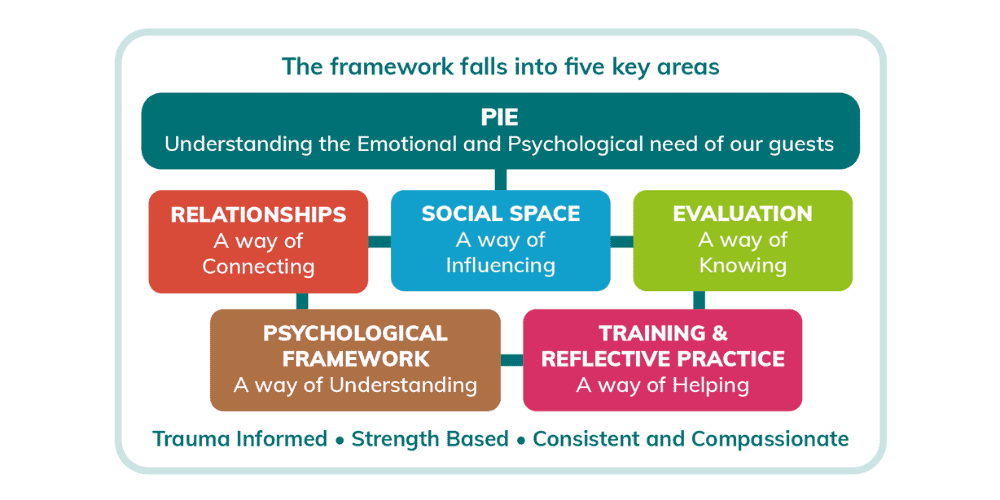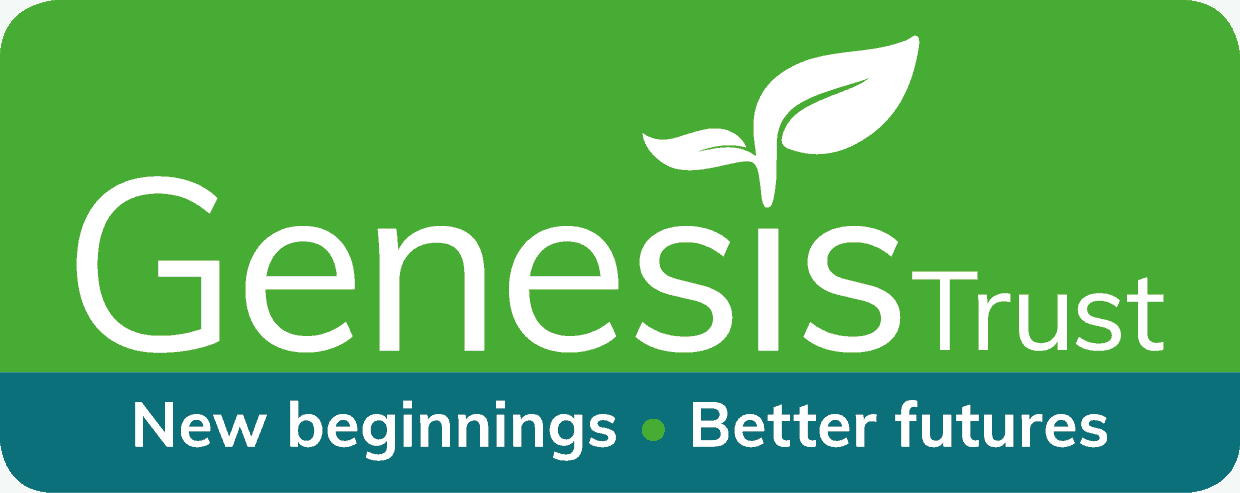
Psychologically Informed Environment
What is a Psychologically Informed Environment and how does it support our clients?
Psychologically Informed Environment is not a project of Genesis Trust in itself, but it informs how we interact with all of our clients in each of the projects we offer at the Gateway Centre.
Our staff team at Genesis Life Projects (Lifeline, Life Skills, Life Recovery, Life Connect and Life Thrive) take a psychologically informed approach when working with our clients. A Psychologically Informed Environment (PIE) is a service that is designed and delivered in a way that takes into account the emotional and psychological needs of the individuals using them. Genesis Trust does this by creating a calm and empowering environment where our clients feel emotionally and physically safe. This allows us to more effectively meet their emotional and psychological needs and gain a better understanding of their behaviour.

Why we use PIE
We know that over 90% of our clients at Genesis Life Projects present with complex needs and many have experienced early childhood or adult trauma. This affects them physically, mentally, emotionally, socially or financially throughout their adult lives. This is why it’s so important to be psychologically informed.
The impact of trauma must be explicitly acknowledged in our clients’ past and how it’s presenting in their present. We use Trauma Informed Care; an approach to improve staff’s awareness of trauma and its impact on the lives of our clients. To truly support our clients we need to have an understanding of their complex lives and what that means. Approaching them using PIE helps us to do that.
“Creating a Psychologically Informed Environment is about recognising people’s emotional and psychological needs. When we do this, we recognise a responsibility to try and create an environment catered to the individual; moving away from a ‘one size fits all’ approach. Each of our guests (clients) are unique, as is the journey they are on.”
Sue Fourie, Genesis Life Projects Manager
If you’d like to read more about PIE and what Trauma Informed Care is, please click HERE.

Relationships
Relationships are how we connect with one another, so it’s no surprise that they are the cornerstone of a PIE and the principal tool for change. Developing positive relationships – both between clients and between colleagues – based on trust, mutual respect and dignity is fundamental to supporting people to change and progress their recovery.
Social Space
By creating a warm and inviting space, we can better influence our client’s mental health, happiness, and overall wellbeing. Our physical environment effects our sense of identity, our worth, our dignity and it can empower or disempower us. We ensure our social space is the following:
- Welcoming and not institutional.
- Encouraging of interaction, conversation, and connection.
- Calm and empowering; that it’s safe and where we can gain an understanding of our clients’ behaviour.
- A place where clients can have their say without fear of being judged or criticised but rather feel included, valued, and heard.
- A place where clients take part ‘in doing’ and feel that they belong.
- A space of opportunity for clients to move along their journey.
Evaluation
Evaluating what we do is vital to knowing the effectiveness of our work, if it is having a positive or negative impact and how we need to adjust any ongoing developments. We use a number of measuring tools to evaluate our work:
- Numbers – our quantitative outcomes.
- Assessment using WEMWBS or Recovery Star to measure mental wellbeing before and after intervention.
- User Satisfaction survey: How the client rates the course, tutor etc.
- Client comments.
- Staff interaction with client: talking/listening/ asking questions.
- Staff reflective practice sessions with colleagues.
Psychological Framework
A framework allows us to have a shared understanding of and response to the people we support. At Genesis Life Projects we recognise our clients have challenging behaviour and particular support needs, often arising from early trauma and abuse. Therefore we have chosen the following approaches to underpin our service:
- Trauma Informed Care – an approach to improve staff’s awareness of trauma and it’s impact on the lives of our clients.
- A Strength Based Approach – We focus on the strengths and potential of each client, not their weaknesses.
- Compassion and Consistency
Training & Reflective Practice
Training equips the Genesis Life Projects staff to be skilled in engaging and helping our clients in a flexible and personalised way. It also builds confidence and resilience in staff which means we move away from crises management and work in a more therapeutic and planned way. Reflective Practice is critical to staff wellbeing and tackling challenges and should be embedded across all key areas of PIE.
Continuous training and learning happen in these areas:
- Core Training in principles of PIE for all staff.
- Reflective Practice for all staff.
- Trauma Informed Practice.
- Motivational Interviewing.
- Drug & Alcohol awareness.
